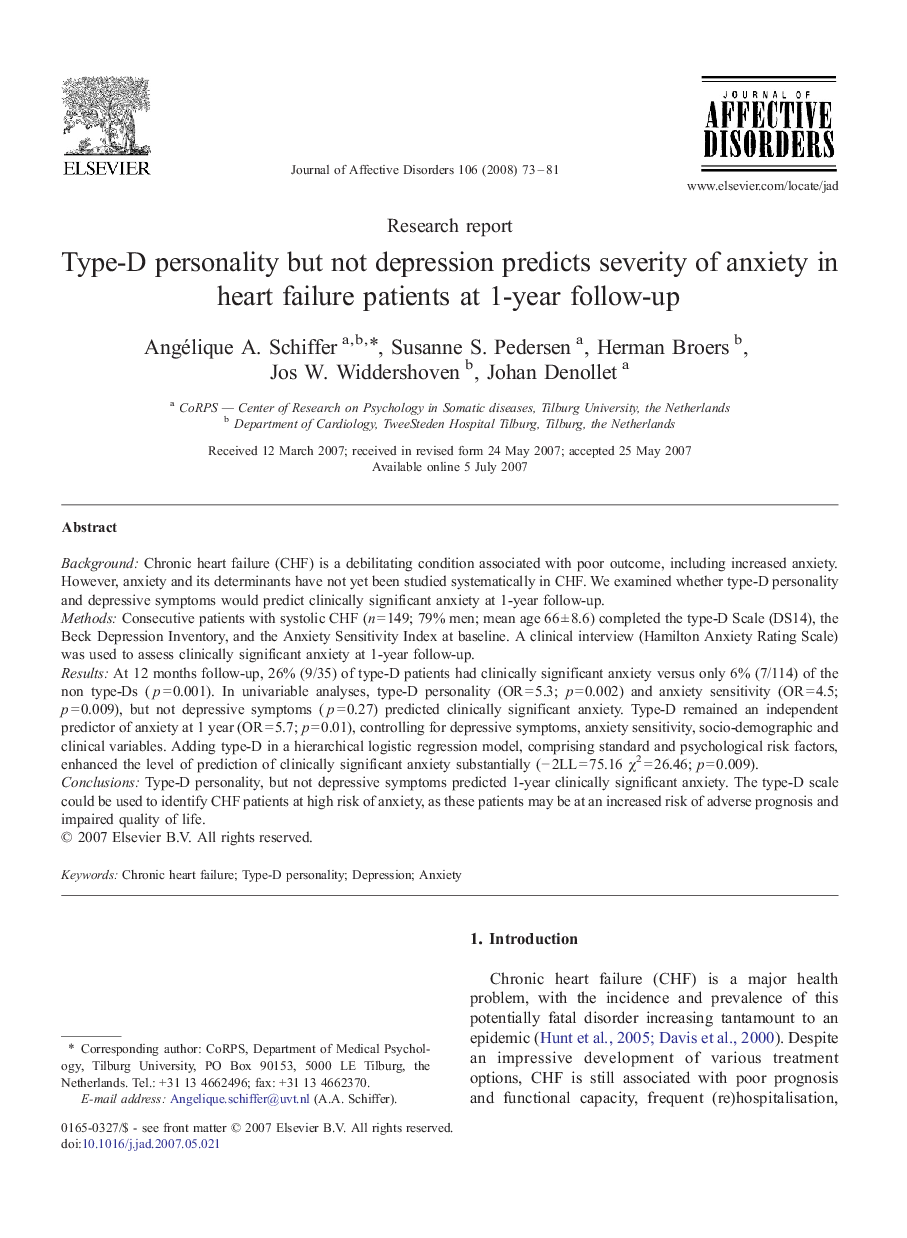| Article ID | Journal | Published Year | Pages | File Type |
|---|---|---|---|---|
| 4187672 | Journal of Affective Disorders | 2008 | 9 Pages |
BackgroundChronic heart failure (CHF) is a debilitating condition associated with poor outcome, including increased anxiety. However, anxiety and its determinants have not yet been studied systematically in CHF. We examined whether type-D personality and depressive symptoms would predict clinically significant anxiety at 1-year follow-up.MethodsConsecutive patients with systolic CHF (n = 149; 79% men; mean age 66 ± 8.6) completed the type-D Scale (DS14), the Beck Depression Inventory, and the Anxiety Sensitivity Index at baseline. A clinical interview (Hamilton Anxiety Rating Scale) was used to assess clinically significant anxiety at 1-year follow-up.ResultsAt 12 months follow-up, 26% (9/35) of type-D patients had clinically significant anxiety versus only 6% (7/114) of the non type-Ds (p = 0.001). In univariable analyses, type-D personality (OR = 5.3; p = 0.002) and anxiety sensitivity (OR = 4.5; p = 0.009), but not depressive symptoms (p = 0.27) predicted clinically significant anxiety. Type-D remained an independent predictor of anxiety at 1 year (OR = 5.7; p = 0.01), controlling for depressive symptoms, anxiety sensitivity, socio-demographic and clinical variables. Adding type-D in a hierarchical logistic regression model, comprising standard and psychological risk factors, enhanced the level of prediction of clinically significant anxiety substantially (− 2LL = 75.16 χ2 = 26.46; p = 0.009).ConclusionsType-D personality, but not depressive symptoms predicted 1-year clinically significant anxiety. The type-D scale could be used to identify CHF patients at high risk of anxiety, as these patients may be at an increased risk of adverse prognosis and impaired quality of life.
